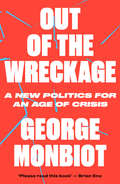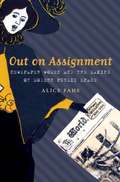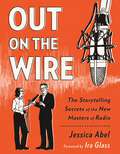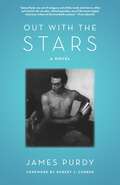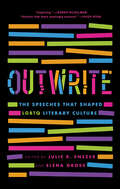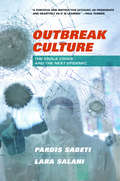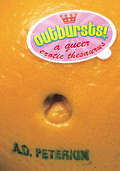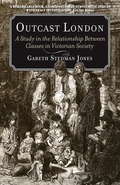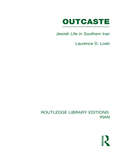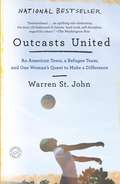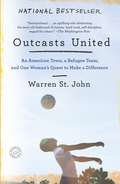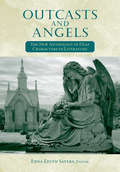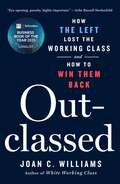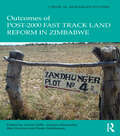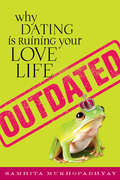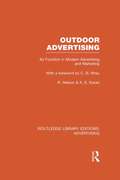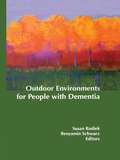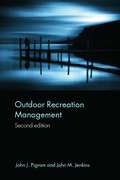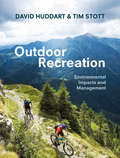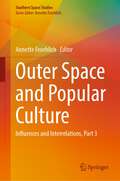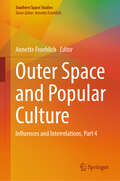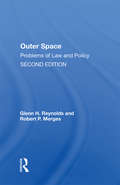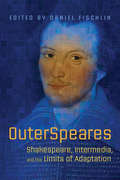- Table View
- List View
Out of the Vinyl Deeps: Ellen Willis on Rock Music
by Daphne Carr Evie NagyIn 1968, the New Yorker hired Ellen Willis as its first popular music critic. Her column, Rock, Etc., ran for seven years and established Willis as a leader in cultural commentary and a pioneer in the nascent and otherwise male-dominated field of rock criticism. As a writer for a magazine with a circulation of nearly half a million, Willis was also the country&’s most widely read rock critic. With a voice at once sharp, thoughtful, and ecstatic, she covered a wide range of artists—Bob Dylan, The Who, Van Morrison, Elvis Presley, David Bowie, the Rolling Stones, Creedence Clearwater Revival, Joni Mitchell, the Velvet Underground, Sam and Dave, Bruce Springsteen, and Stevie Wonder—assessing their albums and performances not only on their originality, musicianship, and cultural impact but also in terms of how they made her feel. Because Willis stopped writing about music in the early 1980s—when, she felt, rock &’n&’ roll had lost its political edge—her significant contribution to the history and reception of rock music has been overshadowed by contemporary music critics like Robert Christgau, Lester Bangs, and Dave Marsh. Out of the Vinyl Deeps collects for the first time Willis&’s Rock, Etc. columns and her other writings about popular music from this period (includingliner notes for works by Lou Reed and Janis Joplin) and reasserts her rightful place in rock music criticism. More than simply setting the record straight, Out of the Vinyl Deeps reintroduces Willis&’s singular approach and style—her use of music to comment on broader social and political issues, critical acuity, vivid prose, against-the-grain opinions, and distinctly female (and feminist) perspective—to a new generation of readers. Featuring essays by the New Yorker&’s current popular music critic, Sasha Frere-Jones, and cultural critics Daphne Carr and Evie Nagy, this volume also provides a lively and still relevant account of rock music during, arguably, its most innovative period.
Out of the Wreckage: A New Politics for an Age of Crisis
by George MonbiotA thrilling new route to a better societyA toxic ideology of extreme competition and individualism has come to dominate our world. It misrepresents human nature, destroying hope and common purpose. Only a positive vision can replace it, a new story that re-engages people in politics and lights a path to a better future.George Monbiot shows how new findings in psychology, neuroscience and evolutionary biology cast human nature in a radically different light: as the supreme altruists and cooperators. He shows how we can build on these findings to create a new politics: a “politics of belonging.” Both democracy and economic life can be radically reorganized from the bottom up, enabling us to take back control and overthrow the forces that have thwarted our ambitions for a better society.Urgent and passionate, Out of the Wreckage provides the hope and clarity required to change the world.
Out on Assignment
by Alice FahsOut on Assignment illuminates the lives and writings of a lost world of women who wrote for major metropolitan newspapers at the start of the twentieth century. Using extraordinary archival research, Alice Fahs unearths a richly networked community of female journalists drawn by the hundreds to major cities--especially New York--from all parts of the United States. Newspaper women were part of a wave of women seeking new, independent, urban lives, but they struggled to obtain the newspaper work of their dreams. Although some female journalists embraced more adventurous reporting, including stunt work and undercover assignments, many were relegated to the women's page. However, these intrepid female journalists made the women's page their own. Fahs reveals how their writings--including celebrity interviews, witty sketches of urban life, celebrations of being "bachelor girls," advice columns, and a campaign in support of suffrage--had far-reaching implications for the creation of new, modern public spaces for American women at the turn of the century. As observers and actors in a new drama of independent urban life, newspaper women used the simultaneously liberating and exploitative nature of their work, Fahs argues, to demonstrate the power of a public voice, both individually and collectively.
Out on the Wire: The Storytelling Secrets of the New Masters of Radio
by Jessica AbelA Library Journal Best Book of 2015Go behind the scenes of seven of today&’s most popular narrative radio shows and podcasts, including This American Life and RadioLab, in graphic narrative. Every week, millions of devoted fans tune in to or download This American Life, The Moth, Radiolab, Planet Money, Snap Judgment, Serial, Invisibilia and other narrative radio shows. Using personal stories to breathe life into complex ideas and issues, these beloved programs help us to understand ourselves and our world a little bit better. Each has a distinct style, but every one delivers stories that are brilliantly told and produced. Out on the Wire offers an unexpected window into this new kind of storytelling—one that literally illustrates the making of a purely auditory medium. With the help of This American Life's Ira Glass, Jessica Abel, a cartoonist and devotee of narrative radio, uncovers just how radio producers construct narrative, spilling some juicy insider details. Jad Abumrad of RadioLab talks about chasing moments of awe with scientists, while Planet Money&’s Robert Smith lets us in on his slightly goofy strategy for putting interviewees at ease. And Abel reveals how mad—really mad—Ira Glass becomes when he receives edits from his colleagues. Informative and engaging, Out on the Wire demonstrates that narrative radio and podcasts are creating some of the most exciting and innovative storytelling available today.
Out with the Stars
by James PurdyFollowing the discovery of an anonymous libretto, Abner Blossom comes out of retirement to write an opera based on the life of infamous novelist-turned-photographer Cyril Vane. But those who knew Vane and his Russian-born wife, the silent-screen star Madame Olga Petrovna, are prepared to go to any length to suppress the truth about them. Vane’s dark secret follows him to the grave. But his jealous and vengeful widow and her faded cronies employ all the means at their disposal to prevent the opening of Blossom’s opera. Out with the Stars is peopled by the Gothic characters readers of James Purdy have come to anticipate and relish, from Val Sturgis, Kentucky boy made good and now Blossom’s protégé to Francis X. Beauregard, aging star of the silver screen now living surrounded by streetwise hustlers in his Brooklyn mansion.Back in print for the first time since 1993, Purdy’s flamboyant tale of New York City’s pre-Stonewall bohemia includes an incisive Foreword by Robert J. Corber, placing the work within its rich social and cultural context.
OutWrite: The Speeches that Shaped LGBTQ Literary Culture
by Samuel R. Delany Sarah Schulman Judy Grahn John Preston Essex Hemphill Dorothy Allison Allan Gurganus Jewelle Gomez Edmund White Allen Ginsberg Susan Griffin Cheryl Clarke Linda Villarosa Tony Kushner Craig Lucas Pat Califia Melvin Dixon Minnie Bruce Pratt Mariana Romo-Carmona Chrystos Peggy Shaw Luis Alfaro Janice Gould Kate Rushin Nancy K. BereanoRunning from 1990 to 1999, the annual OutWrite conference played a pivotal role in shaping LGBTQ literary culture in the United States and its emerging canon. OutWrite provided a space where literary lions who had made their reputations before the gay liberation movement—like Edward Albee, John Rechy, and Samuel R. Delany—could mingle, network, and flirt with a new generation of emerging queer writers like Tony Kushner, Alison Bechdel, and Sarah Schulman. This collection gives readers a taste of this fabulous moment in LGBTQ literary history with twenty-seven of the most memorable speeches from the OutWrite conference, including both keynote addresses and panel presentations. These talks are drawn from a diverse array of contributors, including Allen Ginsberg, Judy Grahn, Essex Hemphill, Patrick Califia, Dorothy Allison, Allan Gurganus, Chrystos, John Preston, Linda Villarosa, Edmund White, and many more. OutWrite offers readers a front-row seat to the passionate debates, nascent identity politics, and provocative ideas that helped animate queer intellectual and literary culture in the 1990s. Covering everything from racial representation to sexual politics, the still-relevant topics in these talks are sure to strike a chord with today’s readers.
Outbreak Culture: The Ebola Crisis and the Next Epidemic
by Pardis SabetiAn award-winning genetic researcher and a tenacious journalist examine each phase of the Ebola epidemic in West Africa, the largest and deadliest of its kind. Their postmortem identifies factors that kept key information from reaching doctors, complicated the government’s response to the crisis, and left responders unprepared for the next outbreak.
Outbursts!: A Gay and Lesbian Erotic Thesaurus
by A. D. PeterkinErotic slang words from Great Britain, Canada, the United States, Australia, and other English-speaking nations number well into the tens of thousands. But the history of terms used to describe the sexual activities of gays and lesbians have opposing sources: one, the discreet networks of gay men and lesbians who sought to come up with a new terminology for the pleasures of their secret lives; and the other, those who found gay sexuality repellent, and created phrases that denigrated and insulted its proponents. The result? A coded language, for better or worse, that celebrates sexuality in all its queerness.<P> A. D. Peterkin shows how euphemism, camp humor, rhyme, acronym, and secret code have all been recruited imaginatively by gay men, lesbians, and bisexuals to name what was thought to be unnamable. A. D. Peterkin is a Toronto psychiatrist and journalist.
Outcast London
by Gareth Stedman JonesIn the second half of the nineteenth century, Victorian middle and upper classes felt increasingly threatened by the masses of "outcast London." Gareth Stedman Jones, working from a mass of statistical and documentary evidence, argues that after 1850 London passed through a crisis of social and economic development. Outcast London is a fascinating and important study of the problem at the center of the crisis: the casual poor and their fraught relations with the labor market, with housing and with middle-class London.
Outcaste: Jewish Life in Southern Iran (Routledge Library Editions: Iran)
by Laurence D LoebThis volume is a unique investigation of contemporary Jewish life in a Muslim country and the first ethnography of the Persian-Jewish diaspora, giving the reader a deep appreciation of this relatively unknown culture. The author describes in detail traditional Jewish life in the provincial city of Shiraz and the challenges of coexistence with a Muslim majority.
Outcasts United: An American Town, a Refugee Team, and One Woman's Quest to Make a Difference
by Warren St. JohnAt the center of the story is fiery Coach Luma, who relentlessly drives her players to success on the soccer field while holding together their lives--and the lives of their families--in the face of a series of daunting challenges.
Outcasts United: An American Town, a Refugee Team, and One Woman's Quest to Make a Difference
by Warren St. JohnThis young people's version of the adult bestseller is a complex and inspirational story about the the Fugees, a youth soccer team made up of refugees from around the world, and their formidable female coach. <P>Clarkston, Georgia, was a typical southern town until it became a refugee resettlement center. <P>The author explores how the community changed with the influx of refugees and how a single individual made a difference in the lives of so many.
Outcasts and Angels: The New Anthology of Deaf Characters in Literature
by Edna Edith SayersIn 1976, Trent Batson and Eugene Bergman released their classic Angels and Outcasts: An Anthology of Deaf Characters in Literature. In it, they featured works from the 19th and 20th centuries by well-known authors such as Charles Dickens and Eudora Welty. They also presented less-well-known deaf authors, and they prefaced each excerpt with remarks on context, societal perceptions, and the dignity due to deaf people. Since then, much has transpired, turning around the literary criticism regarding portrayals of deaf people in print. Edna Edith Sayers reflects these changes in her new collection Outcasts and Angels: The New Anthology of Deaf Characters in Literature. Sayers mines the same literary vein as the first volume with rich new results. Her anthology also introduces rare works by early masters such as Daniel Defoe. She includes three new deaf authors, Charlotte Elizabeth, Howard T. Hofsteater, and Douglas Bullard, who offer compelling evidence of the attitudes toward deaf people current in their eras. In search of commonalities and comparisons, Sayers reveals that the defining elements of deaf literary characters are fluid and subtly different beyond the predominant dueling stereotypes of preternaturally spiritual beings and thuggish troglodytes. Outcasts and Angels demonstrates these subtle variations in writings by Ambrose Bierce, Isak Dinesen, Nadine Gordimer, and Flannery O'Connor. Stories by Juozas Grušas, Julian Barnes, and many other international authors broaden the scope of this updated inquiry into the deaf literary character. Sayer's preface and closing essay bring any disparate parts together, completing Outcasts and Angels as a fitting, contemporary companion to the original classic collection.
Outclassed: How the Left Lost the Working Class and How to Win Them Back
by Joan C. WilliamsAn eye-opening, urgent call to mend the broken relationship between college and non-college grads of all races that is driving politics to the far right in the US.Is there a single change that could simultaneously protect democracy, spur progress on climate change, enact sane gun policies, and improve our response to the next pandemic? Yes: changing the class dynamics driving American politics. The far right manipulates class anger to undercut progressive goals and liberals often inadvertently play into their hands. In Outclassed, Joan C. Williams explains how to reverse that process by bridging the “diploma divide”, while maintaining core progressive values. She offers college-educated Americans insights into how their values reflect their lives and their lives reflect their privilege. With illuminating stories —from the Portuguese admiral who led that country’s COVID response to the lawyer who led the ACLU’s gay marriage response (and more)— Williams demonstrates how working-class values reflect working-class lives. Then she explains how the far right connects culturally with the working-class, deftly manipulating racism and masculine anxieties to deflect attention from the ways far-right policies produce the economic conditions disadvantaging the working-class. Whether you are a concerned citizen committed to saving democracy or a politician or social justice warrior in need of messaging advice, Outclassed offers concrete guidance on how liberals can forge a multi-racial cross-class coalition capable of delivering on progressive goals.
Outcomes Measurement in the Human Service: Cross-Cutting Issues and Methods (2nd Edition)
by Jennifer L. Magnabosco Ronald W. Manderscheidhe book provides readers with both macro- and micro-perspectives on the topics of outcomes measurement; incorporates practice, policy, and research perspectives; and examines current and long-standing issues within the human services field with regard to outcomes and performance measurement. With numerous authors from the field of social work, this new edition of Outcomes Measurement in the Human Services also boasts contributions from professionals in the fields of psychology, psychiatry, policy research, administration, and numerous other social sciences. With its thorough, authoritative coverage of the issues of outcomes measurement and accountability, this book is appropriate for and directly relevant to courses in evaluation research, clinical practice, social policy, and administration.
Outcomes of post-2000 Fast Track Land Reform in Zimbabwe (Critical Agrarian Studies)
by Ben Cousins Lionel Cliffe Jocelyn Alexander Rudo GaidzanwaThe struggle over land has been the central issue in Zimbabwe ever since white settlers began to carve out large farms over a century ago. Their monopolisation of the better-watered half of the land was the focus of the African war of liberation war, and was partially modified following Independence in 1980. A dramatic further episode in this history was launched at the start of the last decade with the occupation of many farms by groups of African veterans of the liberation struggle and their supporters, which was then institutionalised by legislation to take over most of the large commercial farms for sub-division.Sustained fieldwork over the intervening years, by teams of scholars and experts, and by individual researchers is now generating an array of evidence-based findings of the outcomes: how land was acquired and disposed of; how it has been used; how far new farmers have carved out new livelihoods and viable new communities; the major political and economic problems they and other stakeholders such as former farm-workers, commercial farmers, and the overall rural society now face.This book will be an essential starting place for analysts, policy-makers, historians and activists seeking to understand what has happened and to spotlight the key issues for the next decade.This book was published as a special issue of the Journal of Peasant Studies.
Outdated: Why Dating Is Ruining Your Love Life
by Samhita MukhopadhyayRomance and love are in a state of crisis: Statistically speaking, young women today are living romantic lives of all kinds-but they're still feeling bogged down by social, cultural, economic, and familial pressures to love in a certain way. Young women in the modern world have greater flexibility than ever when it comes to who we choose to love and how we choose to love them; but while social circumstances may have changed since our parents' generation, certain life expectations remain. In Outdated, Samhita Mukhopadhyay addresses the difficulty of negotiating loving relationships within the borderlands of race, culture, class, and sexuality-and of holding true to our convictions and maintaining our independence while we do it.Outdated analyzes how different forms of media, cultural norms, family pressure, and even laws, are produced to scare women into believing that if they don't devote themselves to finding a man, they'll be doomed to a life of loneliness and shame. Using interviews with young women that are living around, between, within, and outside of the romantic industrial complex, Mukhopadhyay weaves a narrative of the alternative ways that women today have elected to live their lives, and in doing so offers a fresh, feminist look at an old topic: How do diverse, independent young women date happily and successfully-and outside of the box?
Outdoor Advertising (Routledge Library Editions: Advertising)
by Richard Nelson Anthony SykesThe poster as we know it dates from the Industrial Revolution, although one form of outdoor advertising has existed for many centuries. Industrialisation meant that producer became separated from consumer while production for mass consumption rapidly increased, so that a development was necessary in the methods employed in bringing to public notice the merits and very existence of many goods. Billsticking began, a business rife with skulduggery, and in the second half of the nineteenth century an enterprising billposter took the step that changed outdoor advertising forever: he rented a site. From there the industry has grown apace, and Outdoor Advertising makes sense of these changes by looking at its practical side, the contractor, the agent, the designer, and the planning side, including site selection, as well as looking at specific campaigns and how their audience have received them. This, then, is a book about outdoor advertising, its design and colourful presentation, its place in the advertising and marketing story. First published in 1953.
Outdoor Environments for People with Dementia
by Susan Rodiek Benyamin SchwarzLearn how gardens and parks can be beneficial to residents Mounting evidence reveals that nature and outdoor environments provide individuals with dementia greater enjoyment in life, lower stress levels, and positive changes to physical well-being. Outdoor Environments for People with Dementia explores how fulfilling the fundamental genetically based need of human relationships with nature can improve the health and well-being of people with dementia. Top experts analyze current research and comprehensively examine how the design processes of gardens and parks can be closely connected to effective interventions. Evaluation tools for those with dementia are discussed, including studies of the impact of plants and outdoor activities on this population. Outdoor Environments for People with Dementia discusses in detail practical approaches that can significantly improve the quality of life for dementia victims. Research is discussed revealing important aspects and issues needing to be addressed when creating better outdoor environments that are effective in helping residents of long term care facilities and residential care homes. The text is extensively referenced and provides several tables, figures, and photographs to clearly illustrate concepts. Topics discussed in Outdoor Environments for People with Dementia include: the impact of outdoor wandering parks and therapeutic gardens on people with dementia empirical studies on how access to and participation in nature-related activities can benefit people with dementia interventions to restore people with dementia having directed-attention fatigue evaluation tools for gardens for people with dementia research-based design recommendations for future gardens theories and empirical studies about healing gardens training staff to increase their knowledge about horticulture and encouraging them to involve residents in outdoor activities general guidelines for developing an outdoor space examination of the attributes for the superior outdoor space found in Grand Rapids, Michigan, with design recommendations for the future Outdoor Environments for People with Dementia is a valuable resource for scholars, policymakers, legislators, architects and urban planners, lending institutions, developers, landscape architects, and the lay public in general who have an interest in the subject-personal, professional, or civic.
Outdoor Recreation Management (Routledge Advances in Tourism)
by John Jenkins John PigramIt is now widely recognized that recreation is as important as work. This revealing book analyzes leisure and outdoor recreation in terms of both their management and their wider importance to society. Specifically, it: clarifies the link between leisure, recreation, tourism and resource management reviews contemporary outdoor recreation management and concepts critically examines approaches to outdoor recreation planning and management in diverse recreational settings considers the future of outdoor recreation and the potential influences of economic, social, political and technological developments. Wide-ranging and topical, it considers such issues as motivation and choice, provision for people with special needs, the impact of outdoor recreation on the environment, and outdoor recreation in both urban and rural contexts. This comprehensively revised second edition has many sections rewritten and expanded to reflect contemporary development in leisure and outdoor recreation management in countries such as Australia, Canada, the UK, the US and New Zealand. With an extensive bibliography of more than 500 references and including further reading sections and review questions, it is an essential student purchase and one of the most comprehensive and international accounts of outdoor recreation management available.
Outdoor Recreation: Environmental Impacts and Management
by Tim Stott David HuddartThis textbook presents a comprehensive overview of the environmental impacts of various types of outdoor recreation, and how these can be best managed. As a field of study, recreational ecology is both multidisciplinary and interdisciplinary, and the authors seek to develop a deeper understanding of both the role and function of the factors that influence visitor numbers and their impact. An accessible and comprehensive textbook, it features numerous types of outdoor recreational activities including hill walking, rock climbing, mountain marathons, skiing, scuba diving and more.Drawn from several global case studies, the authors estimate the current and future numbers involved in outdoor recreation, and how best these numbers can be managed. Effective visitor impact management actions arise from collaboration between recreation ecologists, social scientists, experienced recreation managers, recreation stakeholders and the recreationalists themselves: as such, this book will be multi-disciplinary in scope. This practical and engaging textbook will be invaluable to students and scholars of outdoor recreation and adventure tourism as well as practitioners and managers working in the field.
Outer Space and Popular Culture: Influences and Interrelations, Part 3 (Southern Space Studies)
by Annette FroehlichThis book provides detailed insights into how space and popular culture intersect across a broad spectrum of examples, including cinema, music, art, arcade games, cartoons, comics, and advertisements. This is a pertinent topic since the use of space themes differs in different cultural contexts, and these themes can be used to explore various aspects of the human condition and provide a context for social commentary on politically sensitive issues. With the use of space imagery evolving over the past sixty years of the space age, this is a topic ripe for in-depth exploration. The book also discusses the contrasting visions of space from the late nineteenth and early twentieth centuries and the reality of today and analyzes space vehicles and habitats in popular depictions of space from an engineering perspective, exploring how many of those ideas have actually been implemented in practice and why or why not (a case of life imitating art and vice versa). As such, it covers a wide array of relevant and timely topics examining intersections between space and popular culture and offering accounts of space and its effect on culture, language, and storytelling from the southern regions of the world.
Outer Space and Popular Culture: Influences and Interrelations, Part 4 (Southern Space Studies)
by Annette FroehlichFollowing on from the highly acclaimed Parts 1 to 3, this book provides detailed insights into how space and popular culture intersect across a broad spectrum of examples, including cinema, music, art, arcade games, cartoons, comics, and advertisements. This is a pertinent topic since the use of space themes differs in different cultural contexts, and these themes can be used to explore various aspects of the human condition and provide a context for social commentary on politically sensitive issues. With the use of space imagery evolving over the past sixty years of the space age, this is a topic ripe for in-depth exploration. The book also discusses the contrasting visions of space from the late nineteenth and early twentieth centuries and the reality of today and analyzes space vehicles and habitats in popular depictions of space from an engineering perspective, exploring how many of those ideas have actually been implemented in practice and why or why not (a case of life imitating art and vice versa). As such, it covers a wide array of relevant and timely topics examining intersections between space and popular culture and offering accounts of space and its effect on culture, language, and storytelling from the southern regions of the world.
Outer Space: Problems Of Law And Policy
by Glenn Reynolds Robert MergesThis book examines the international and domestic American legal problems associated with activity in outer space from a strong policy perspective, with particular attention given to problems associated with space commercialization and with military activities in outer space. Outer Space: Problems of Law and Policy is indispensable as a casebook, reference, and self-teaching tool for students, practitioners, academics, and members of the aerospace industry.
OuterSpeares
by Daniel FischlinFor Shakespeare and Shakespearean adaptation, the global digital media environment is a "brave new world" of opportunity and revolution. In OuterSpeares: Shakespeare, Intermedia, and the Limits of Adaptation, noted scholars of Shakespeare and new media consider the ways in which various media affect how we understand Shakespeare and his works.Daniel Fischlin and his collaborators explore a wide selection of adaptations that occupy the space between and across traditional genres - what artist Dick Higgins calls "intermedia" - ranging from adaptations that use social networking, cloud computing, and mobile devices to the many handicrafts branded and sold in connection with the Bard.With essays on YouTube and iTunes, as well as radio, television, and film, OuterSpeares is the first book to examine the full spectrum of past and present adaptations, and one that offers a unique perspective on the transcultural and transdisciplinary aspects of Shakespeare in the contemporary world.

